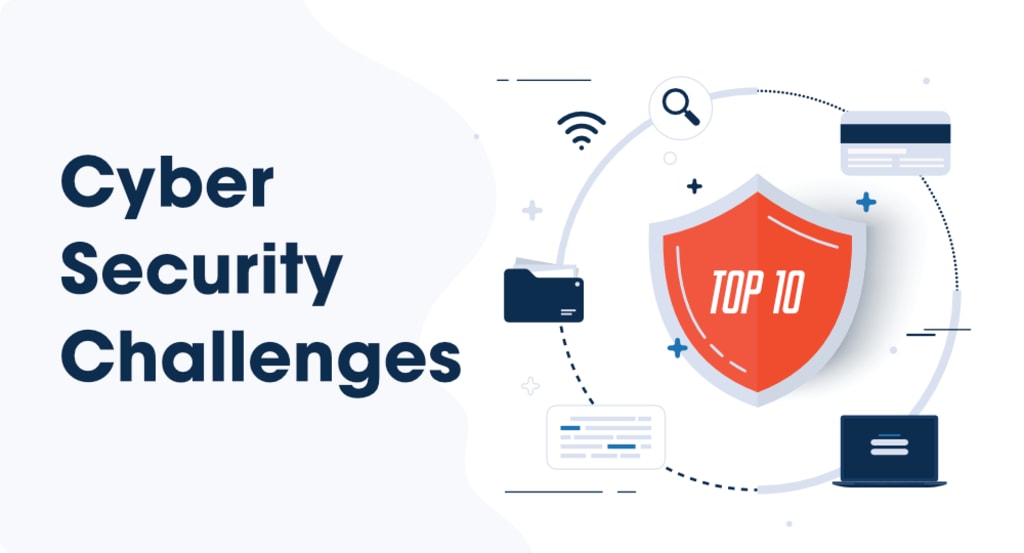Best IT Security Tips Essentials for Small Businesses
IT Security Tips

Small businesses are also susceptible to cyber threats, which aren't just problems for large organizations and governments. Evidence supports the claim that small businesses are more vulnerable to cyberattacks, partly because they occasionally lack the funds to defend themselves adequately.
It's crucial to defend your company against cyberattacks, but with the online environment constantly changing, it can take time to know where to begin. Here is a guide to help small businesses navigate the world of cyber threats.
Why is IT security necessary?
Your company probably handles sensitive information. Information security has many facets that cover all of your business functions, whether it be contact information for your business partners or a database of your clients. Many kinds of IT consulting companies in NYC are available, but every business has different requirements; hence choose IT consulting company which meets your requirements.
Every business should prioritize taking a comprehensive approach to safeguarding its assets, business operations, and infrastructure, especially in the modern era when anything could disappear overnight.
The bottom line is that having small business cyber security solutions in place ensures your company's security. It only makes sense to protect it in the modern world, where every business decision is based on acquired data.
Cybersecurity Tips for Small Businesses and the Most Common Threats
Information technology and broadband are significant drivers of productivity and efficiency growth for small businesses as they expand into new markets. To counter the escalating cybersecurity threats, companies must have a cybersecurity strategy to safeguard their operations, clients, and data.
1. Educate staff on security principles
Establish fundamental cybersecurity procedures and policies for staff members, such as requiring strong passwords and appropriate Internet usage guidelines that spell out the consequences of breaking the organization's cybersecurity rules. Create guidelines outlining how to manage and protect customer information and other important data.
2. Prevent cyberattacks on data, computers, and networks.
The best defenses against viruses, malware, and other online threats are the most recent versions of your operating system, web browser, and security software. A scan should be performed after each update in antivirus software. As soon as new updates for other crucial software become available, install them.
3. Protect your Internet connection with a firewall
A firewall is a group of related programs that guard against unauthorized access to information on a private network. Check whether the operating system's firewall is activated or install online-available, free firewall software. Ensure that employees who use any home systems for work are firewall-protected if they work from home.
4. Make an action plan for mobile devices.
Mobile devices can pose serious security and management difficulties, particularly if they contain sensitive data or have access to the company network. To stop thieves from stealing data while a phone is connected to a public network, mandate that users password-protect their devices, encrypt their data and install security apps. Establish reporting procedures for equipment that has been lost or stolen.
5. Create backup copies of crucial business information and data.
Make regular backups of all computer data. Word processing files, electronic spreadsheets, databases, financial files, human resources files, and accounts receivable/payable files are examples of critical data. Data should be automatically backed up at least once a week, and copies should be kept offsite or in the cloud.
6. Keep an eye on who has physical access to your computers, and give each employee their user account
Prevent unauthorized users from accessing or using company computers. Locking laptops unattended will prevent theft and loss. Ensure each employee has a user account and insists on using strong passwords. Only key personnel and trusted IT staff should be granted administrative privileges.
7. Protect your wireless networks
Make sure your office's Wi-Fi network is hidden, encrypted, and secure if you have one. Set up your wireless access point or router so it does not broadcast the network name, also referred to as the Service Set Identifier, to conceal your Wi-Fi network (SSID). Secure router access with a password.
8. Use best practices for credit and debit cards
Use the most reliable and verified tools and anti-fraud services by working with banks or processors. Additional security requirements may be imposed on you in accordance with contracts with your bank or processor. Use different computers to process payments, browse the Internet, and isolate payment systems from other, less secure programs.
9. Restrain employee access to data and information and software installation authority
Only let a single employee have access to some of the data systems. Employees should only be allowed to install software with permission and should only be given access to the specific data systems required for their jobs.
10. Security codes and identification
Make it mandatory for employees to use special passwords and to change them every three months. Consider using multi-factor authentication, which requires more than just a password to gain access. Determine whether your vendors who deal with sensitive data, particularly financial institutions, offer multi-factor authentication for your account by checking with them.
Read more: Top IT Consulting Companies in Chicago
What qualities a cybersecurity company should have
The main focus of many small businesses may be something else. Given that your company depends on cybersecurity, it makes sense if you need assistance. How do you search for a cybersecurity firm?
Independent evaluations and tests
It's important to look at independent tests and reviews because a cybersecurity company might try to impress you with technical jargon and an impressive marketing campaign. The top cybersecurity companies welcome testing of their goods and are happy to share the results.
Avoid low-cost options
Avoid companies that enter your space, install software, and then vanish. Additionally, a business that claims to be a one-field specialist but doesn't offer any other products or support can't give you the security you require.
Extra assistance
You want a business that offers a respectable level of support, whether a threat has been found or you are having trouble backing up your files. Pick a company that guides you through threats, identifies solutions, and simplifies cybersecurity.
Possibility of growth
You need a cybersecurity company that can expand along with your business as it grows. Pay attention to businesses that provide the full spectrum of business security systems, including any that you might require in the future.
Even though small business owners have always had a lot to do, cybersecurity is currently at the top of the list. Fortunately, you can take precautions to safeguard your small business, and a reliable cybersecurity firm can help you reduce your risks.






Comments
There are no comments for this story
Be the first to respond and start the conversation.